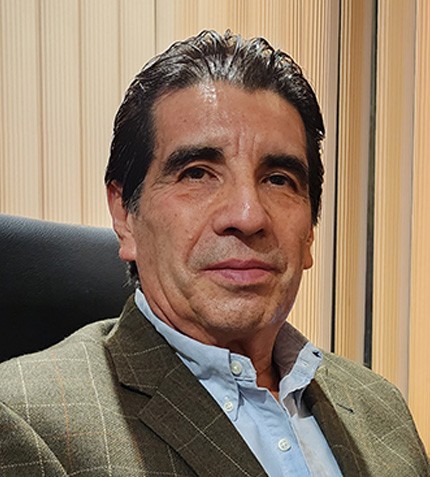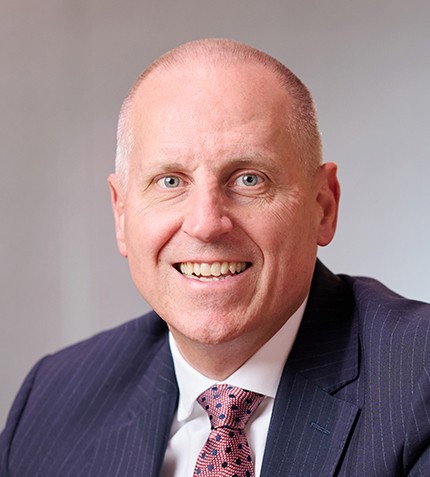
"We harvest our Ascophyllum nodosum manually to maintain the seaweed beds, as machine-harvesting may damage the seaweed."
Sergio Aburto
DIRECTOR LATIN AMERICA NORTH, ACADIAN PLANT HEALTH
How do Acadian Plant Health's products reduce plant stress?
Our products and extracts are unique, coming from a seaweed called Ascophyllum nodosum which is naturally grown in the North Atlantic Sea in Canada. It is the world's best-known seaweed, offering the greatest benefits and uses. Although Ireland and Scotland have Ascophyllum, our Canadian seaweed has a higher concentration of bioactive compounds providing a high bio-stimulant technology that help plants thrive, improving the crops abiotic stress resistance. Crops are stressed by everything, including wind, temperature, dust, pests, diseases, weeds, etc. Therefore, for a crop to express the maximum potential, every element of the agricultural process needs to be done correctly – fertilization, irrigation, pest control, and stress control.
How has drought impacted agricultural activities?
It has been a very challenging year due to extreme drought. The northern regions have suffered the most. The climate situation will particularly impact cereals, including corn, wheat and sorghum. The government tends to prioritize the people when there is insufficient water for both (population and agriculture). However, Acadian Plant Health’s most hardy market is specialty crops: Berries, avocados, tomatoes, agave, and other vegetables. These crops have irrigation systems, so they are not impacted by drought to the same degree.
Can you discuss your perspective on the politics around GMOs?
This government claims that genetically modified corn is dangerous and harmful for people's health, but that is a flawed perspective. Genetically modified corn is not prohibited in the US, Canada, Europe, Brazil, or Argentina, all of which are major corn producers. None of those areas view GMO corn to be harmful to health. It is unclear what evidence the Mexican government will provide to support its claims when tons of studies outside the country show that genetically modified corn is safe.
The problem of genetically modified corn in Mexico is political. The current government seeks to reactivate certain economic sectors of the country. Agriculture is an essential segment in this project, given that agriculture is an industry in which people have the least resources. The government wants to reactivate production in other areas. Still, if they pull people with low economic resources to produce corn, they will produce it only in small, subsistence-level quantities. Without GMOs these farmers will not have access to improved plant varieties that produce yields sufficient to survive and generate profits. The issue is more complex than the government imagines.
Where is Acadian Plant Health seeing growth?
The company has been very strong in vegetable crop biostimulation products for quite some time. Acadian has also launched a new product this year, TOGGLE. This new product was designed to target grains, cereals and industrial crops, allowing crops such as wheat, corn, cotton, sugar cane and others to be more resilient against abiotic stress, helping producers to gain higher yields in a more sustainable manner as well.
Sugar cane is also experiencing a prosperous growth, with prices increasing. Sugar cane producers are investing in technology that will increase their quality and productivity, and using our technology has been a high point for them due to the benefits they are able to gain.
Agave has also been a key crop for the past three years. The market continues to grow. We expect that agave will be one of our most important markets in the next two years. Finally, walnut trees are another specialty crop in which APH sees potential growth here in Mexico.
Can you discuss the company's approach to sustainable harvesting?
Sustainability is one of Acadian's essential foundations, part of the company's day-to-day business.
We harvest our Ascophyllum nodosum manually to maintain the seaweed beds, as machine-harvesting may damage the seaweed. The availability of seaweed compared to its demand is a significant challenge, so we have a dedicated department in Halifax that manages our harvesting to ensure that we are looking after the seaweed properly, allowing us to supply our clients demands.
What is Acadian's process of innovation?
Innovation is key for our business. If you get stuck or delayed, you will lose your market. To ensure we stay ahead, we work simultaneously on three product lines, ensuring that we have at least one ready to launch to the market each year.










